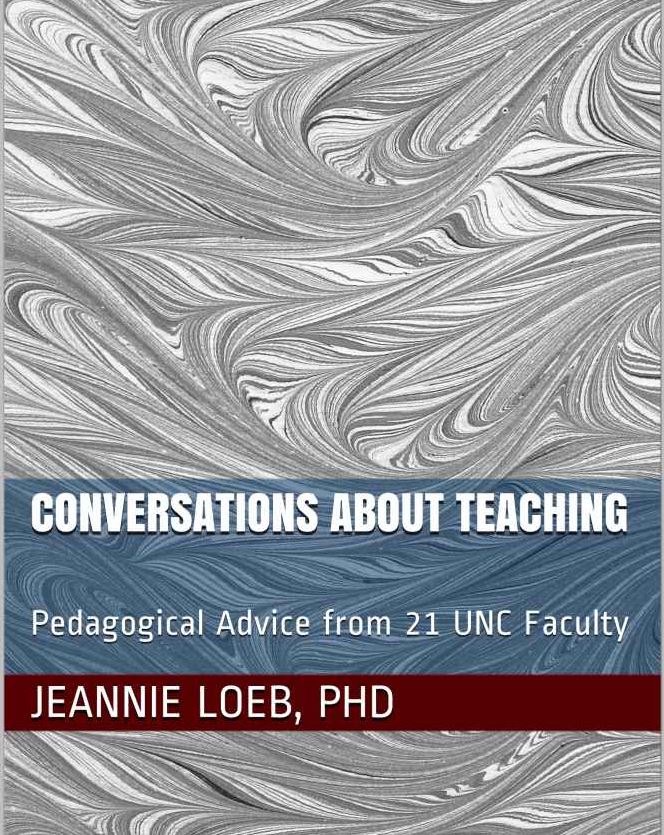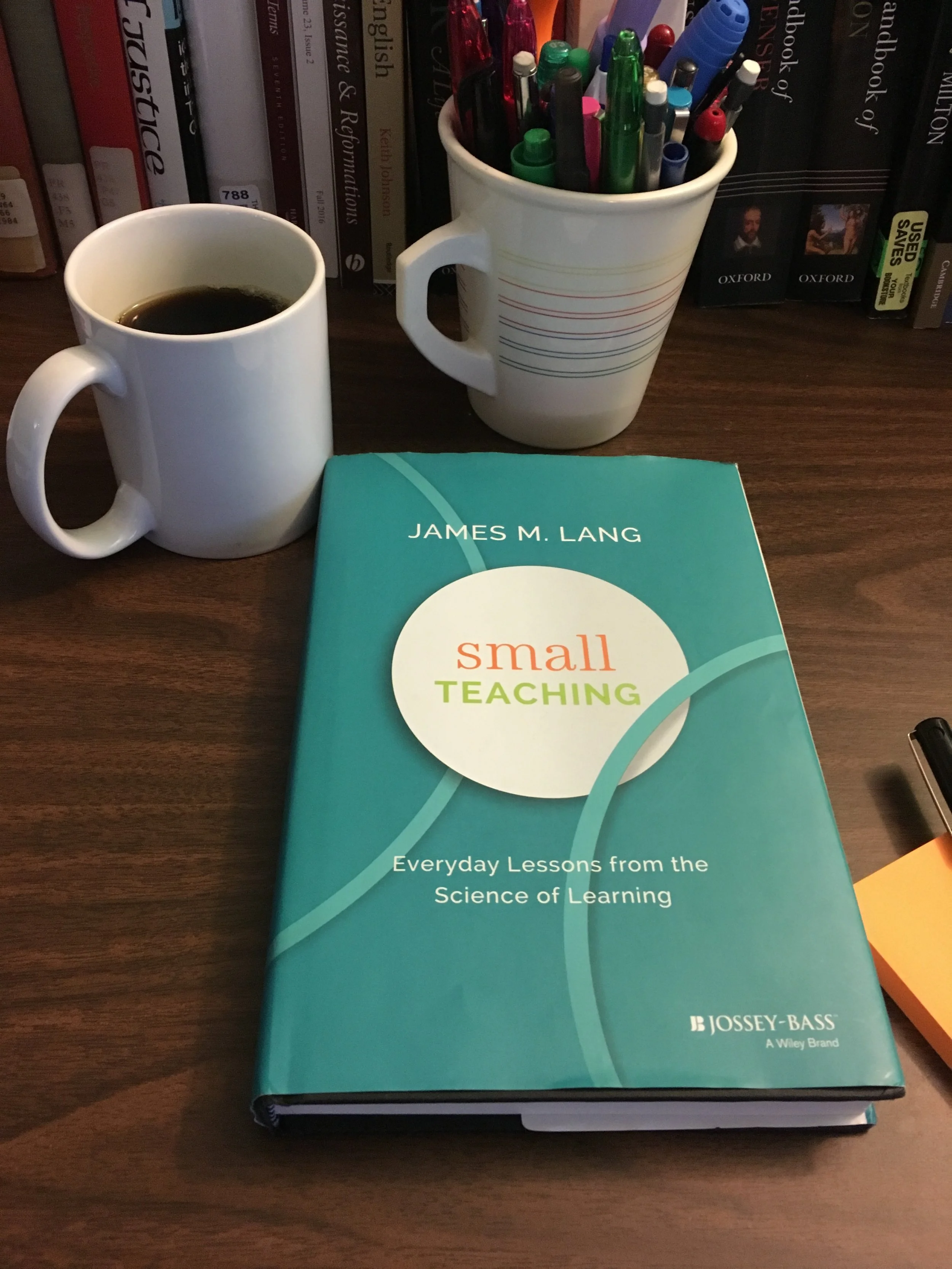Review: Conversations about Teaching by Jeannie Loeb
From time to time, I will use this space to share reviews of teaching-oriented resources. Today, I’m discussing Conversations about Teaching: Pedagogical Advice from 21 UNC Faculty, by Jeannie Loeb.
First, a word about how I came across this book: I earned my Ph.D. from UNC, and a graduate-school colleague with whom I’m connected on Facebook recommended Loeb’s book.
Conversations about Teaching is a short book full of thought-provoking and practical perspectives from experienced teachers. As I lamented in my introductory essay here on this blog, I wish that teachers talked more with each other about their teaching. The teachers quoted in this book share not only practical details of their policies and lesson planning but also their detail-oriented advice about crafting a teaching persona.
Loeb remarks in her introduction that Conversations about Teaching is not meant to provide a systematic, research-based guidebook to college-level instructional practice, but rather it’s an organized collection of anecdotes from expert teachers. The first half of the book is devoted to higher-level planning considerations, beginning with a discussion of teaching philosophies and then moving into chapters about each of what Loeb defines as the “most critical components” of successful teaching: engagement, organization (i.e. course design), and rapport with students. The second half drills down into more specific instructional scenarios, with chapters about recommendation letters, assignment policies, quizzes, and exams.
Loeb deftly supplements quotes from teachers with well-selected citations from research in education and psychology. For instance, she cites several teachers talking about the importance they place on an enthusiastic teaching persona, then she briefly discusses the neurological basis for “contagious enthusiasm” in the notion of “mirror neurons [that] re-create what you are observing within your own brain.” After describing the synergy between the attitudes of expert teachers and psychological theory, she then presents further advice from teachers about how they convey enthusiasm in the classroom. In fact, one of the main messages of Conversations about Teaching is that the philosophies and practices of good teachers often dovetail with pedagogical research, even if the teachers themselves are unaware of the research that demonstrates the efficacy of their approaches.
Practical suggestions from real teachers are woven throughout the book, and any teacher who reads this will come away with at least a few ideas that could be tried out without much modification in a current class. In this regard, I appreciate the way that Conversations about Teaching delves deep into the nitty-gritty details of daily instructional practice. For instance, there’s a lengthy and detailed section about assignment policies, in which teachers share a variety of approaches toward late and missing work. In another section, instructors share the specific ways that they build rapport with their students, the ways that they incorporate (or don’t incorporate) quizzes into their classes, and the ways they balance lecture with discussion- and activity-based learning.
One of the book’s drawbacks is that Loeb assumes the audience will consist primarily of UNC faculty members. Throughout, she recommends UNC-specific professional development resources, such as the Center for Faculty Excellence or a program for faculty peer review of teaching. There are almost 4,000 faculty members at UNC-Chapel Hill, but still, that audience seems pretty limited, and if I were giving input about a second edition of this book, I would suggest using these UNC-based resources as examples, but also generalizing that teachers at other institutions might find similar organizations and programs on their own campuses.
Many of the specific teaching scenarios that the professors quoted in Loeb’s book don’t apply to my teaching. Although blended classes are mentioned, completely online classes are not. Many of the faculty members whose voices comprise Conversations about Teaching also teach large lecture classes, but my university keeps all English courses small. That said, there’s wisdom to be gained from learning about situations that don’t apply to me.
For example, Loeb includes a section of faculty perspectives on handling recommendation requests. Many of the professors who describe their recommendation practices are science faculty members who get dozens of recommendation requests each semester and who teach huge classes with hundreds of students. One teacher describes creating a form for students seeking a recommendation to fill out, which asks them to reflect on their coursework, goals, and personal characteristics, providing examples that the recommender can draw upon. Even though I never have such a large volume of recommendation letters, I could still imagine using this approach. I also appreciate that Loeb’s book even treats a topic like recommendation letters, which acknowledges that teaching relationships and teaching encounters often extend beyond the bounded space of the classroom.
All in all, Conversations about Teaching is a quick read that’s full of friendly, practical, wise advice from real teachers.






